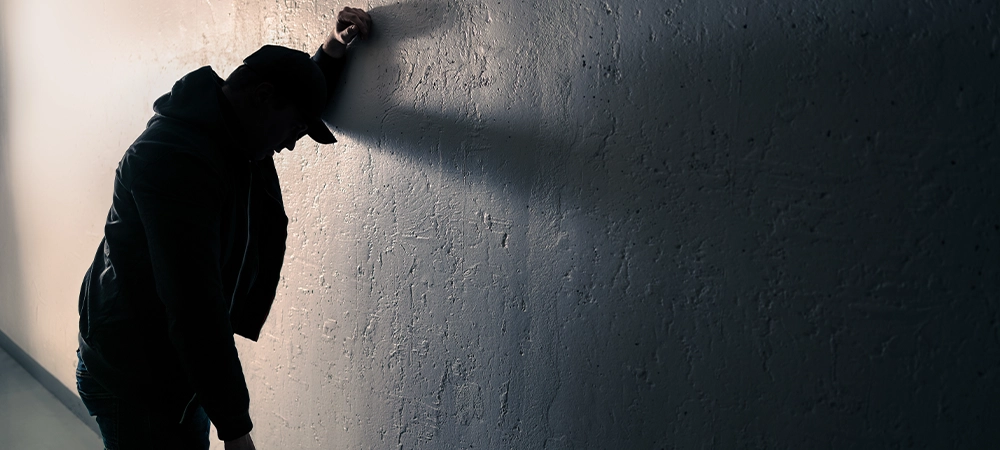Recovering from heroin addiction is a journey filled with both triumphs and challenges. While completing treatment is a significant accomplishment, the path to lasting sobriety requires ongoing effort and vigilance.
Relapse, unfortunately, is a reality for many individuals in recovery. It’s important to understand that relapse is not a sign of failure but rather a learning opportunity—a chance to identify triggers, strengthen coping mechanisms, and recommit to your recovery journey.
In this blog post, we’ll explore practical relapse prevention strategies designed to empower you to maintain your sobriety after heroin treatment.
Addiction Rehab Toronto recognizes that recovery is an ongoing process. We believe in your strength and resilience and are here to walk alongside you every step of the way.
Related Article: Navigating Life with a Recovering Alcoholic: A Guide to Aftercare and Relapse Prevention
Understanding Relapse: Recognizing the Warning Signs
In the recovery journey, it’s essential to understand the concept of relapse and the factors that can contribute to it. By recognizing the warning signs and triggers, you can proactively take steps to protect your sobriety and navigate challenges along the way.
Define Relapse
Relapse is the return to using drugs or alcohol after a period of abstinence. It’s a common occurrence in addiction recovery and doesn’t signify failure but rather a temporary setback on the path to long-term sobriety. Viewing relapse as an opportunity to learn, adjust your strategies, and strengthen your resolve is crucial.
Common Triggers for Relapse
Triggers are situations, people, places, or emotions that can increase the risk of relapse. They can be internal or external:
- Internal triggers: These stem from within yourself and can include:
- Stress and anxiety
- Negative emotions like anger, sadness, or loneliness
- Boredom or lack of purpose
- Physical pain or discomfort
- Cravings or urges to use
- External triggers: These originate from your environment and can include:
- Social situations where drugs or alcohol are present
- People or places associated with past drug use
- Specific sights, sounds, or smells that trigger memories or cravings
- Exposure to media that glorifies drug use

Warning Signs of Relapse
Relapse often doesn’t happen overnight. It’s typically preceded by subtle warning signs that, if recognized early, can help you take action to prevent a full-blown relapse. These warning signs can manifest in various ways:
- Behavioural changes: Isolating yourself, neglecting self-care, or engaging in risky behaviours.
- Emotional changes: Feeling overwhelmed, anxious, irritable, or experiencing mood swings.
- Cognitive changes: Glorifying past drug use, minimizing the consequences of relapse, or engaging in negative self-talk.
Essential Relapse Prevention Strategies
Maintaining sobriety after heroin treatment requires a proactive and multifaceted approach. By implementing these essential relapse prevention strategies, you can confidently strengthen your resilience and navigate the challenges of recovery.
Build a Strong Support Network
Surrounding yourself with supportive individuals who understand your journey is crucial for long-term success. Connect with friends, family members, or peers in recovery who can offer encouragement, understanding, and accountability.
Consider joining a support group or attending aftercare programs to build a community of individuals who share your goals and challenges.
Develop Healthy Coping Mechanisms
Learning to manage stress, anxiety, and other triggers in healthy ways is essential for preventing relapse. Explore coping mechanisms that work for you, such as:
- Exercise: Regular physical activity releases endorphins, reduces stress, and improves overall well-being.
- Mindfulness and Meditation: These practices can help you cultivate self-awareness, manage cravings, and develop emotional resilience
- Creative Outlets: Expressing yourself through art, music, writing, or other creative activities can be a therapeutic way to process emotions and reduce stress
- Healthy Hobbies: Engage in activities you enjoy, such as reading, spending time in nature, or volunteering, to create a sense of purpose and fulfilment
Attend Aftercare Programs and Support Groups
Continued therapy and peer support can reinforce the skills you learned in treatment and provide ongoing accountability. Aftercare programs offer a safe space to discuss challenges, share successes, and learn from others in recovery. Support groups offer a sense of community and belonging, reminding you that you’re not alone in your journey.
Related Article: Why Is Aftercare Crucial for Oakville Residents Post Rehab?
Create a Relapse Prevention Plan
A relapse prevention plan is a personalized roadmap to help you navigate triggers and challenges. It should include:
- Identifying your triggers: Reflect on past experiences and identify situations, people, places, or emotions that might increase your risk of relapse
- Developing coping strategies: Outline specific actions you can take to manage triggers and cravings, such as calling a supportive friend, practising relaxation techniques, or engaging in a healthy activity
- Emergency contacts: Create a list of trusted individuals you can reach out to for help if you feel tempted to use
- Steps to take if relapse occurs: Have a plan in place for seeking professional help and getting back on track if you do experience a relapse
Related Article: Navigating Life with a Recovering Alcoholic: A Guide to Aftercare and Relapse Prevention

Navigating Triggers and Challenges
Maintaining sobriety requires vigilance and proactive strategies to navigate the inevitable triggers and challenges that arise along the way. By developing self-awareness and healthy coping mechanisms, you can empower yourself to stay strong and avoid relapse.
Identify Your Personal Triggers
Triggers are unique to each individual. Take some time to reflect on your experiences and identify the situations, people, places, or emotions that tend to increase your cravings or make you feel vulnerable to relapse.
Once you’ve identified your triggers, you can develop personalized strategies to manage them. This might involve avoiding certain situations, practising mindfulness techniques, or reaching out to your support network for help.
Avoid High-Risk Situations
It’s important to be mindful of situations that may increase your risk of relapse. These can include social events where drugs or alcohol are present, spending time with people who are still using, or revisiting places associated with past drug use.
While avoiding all triggers is impossible, it’s crucial to be aware of them and have a plan to navigate them safely. If you are in a high-risk situation, don’t hesitate to remove yourself or talk to a trusted friend or family member for support.
Practice Self-Care
Prioritizing your physical and mental health is essential for maintaining sobriety. Ensure you get enough sleep, eat a balanced diet, and exercise regularly. These healthy habits can help reduce stress, improve mood, and boost your overall well-being, making you less vulnerable to relapse.
Discover stress-relief methods that resonate with you, like meditation, practising deep breathing, or immersing yourself in the tranquillity of nature. Remember, caring for yourself is not selfish; it’s a crucial part of your recovery journey.
By actively navigating triggers and prioritizing self-care, you can build resilience and strengthen your commitment to sobriety. Remember, recovery is a marathon, not a sprint. There will be challenges along the way, but with the right strategies and support, you can overcome them and achieve lasting recovery.
Embrace the Journey, Embrace Recovery
Recovery is an ongoing journey, not a destination. There will be ups and downs, but with the right tools and support, you can overcome obstacles and achieve lasting sobriety. Never hesitate to reach out for help when you need it. Seeking support is a sign of strength, not weakness.
At Addiction Rehab Toronto, we’re dedicated to walking alongside you on your recovery journey. Our comprehensive aftercare programs and compassionate team are here to provide the guidance and support you need to maintain sobriety and build a brighter future.
If you’re ready to take the next step in your recovery or simply want to learn more about our relapse prevention services, don’t hesitate to contact us. We’re here to help you every step of the way.
Call us at 855-787-2424 or visit our website to learn more.
Remember, you’re not alone. Recovery is possible, and we’re here to help you achieve it.







